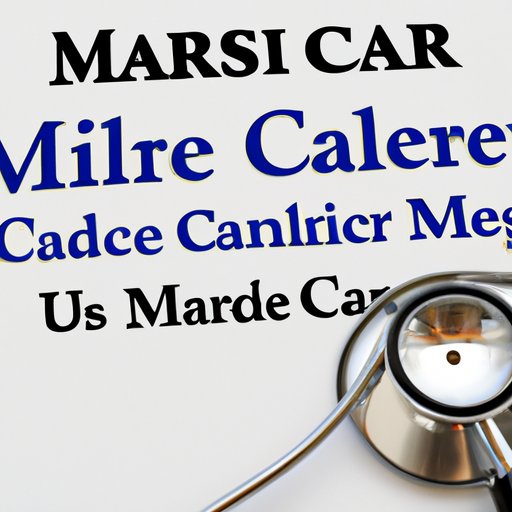Introduction
Cataracts are a common eye condition that affects millions of people every year. If left untreated, they can cause vision loss and other complications. Fortunately, cataract surgery is a safe and effective way to treat cataracts and restore vision. But does Medicare cover cataract surgery? This article will explore the costs associated with cataract surgery and how Medicare helps cover them.

Cost of Cataract Surgery and How Medicare Helps Cover It
The cost of cataract surgery varies depending on the type of procedure and the surgeon’s fees. Generally speaking, the out-of-pocket costs for cataract surgery can range from $1,500 to $3,000 per eye. Fortunately, Medicare may help cover some or all of these costs.
If you have Original Medicare (Part A and Part B), you may be eligible for coverage for cataract surgery. Part A may cover the hospital services associated with the procedure, while Part B may cover the doctor’s services. Your specific coverage will depend on the type of cataract surgery you need and other factors.
Exploring Different Types of Cataract Surgery and What Medicare Covers
There are two main types of cataract surgery: traditional cataract surgery and laser cataract surgery. Traditional cataract surgery involves removing the lens of the eye and replacing it with an artificial lens. Laser cataract surgery uses a laser to break up and remove the cloudy lens, then replace it with an artificial lens.
Original Medicare typically covers both traditional and laser cataract surgery. However, if you choose to have a more advanced type of laser cataract surgery, you may need to pay extra out-of-pocket costs. Be sure to ask your doctor about any extra costs you may incur.
When Does Medicare Pay for Cataract Surgery?
In order to qualify for Medicare coverage for cataract surgery, you must meet certain eligibility requirements. First, you must be enrolled in Medicare Part A and Part B. You must also have a diagnosis of cataracts and be experiencing vision impairment due to the cataracts. Finally, your doctor must certify that the cataract surgery is medically necessary.
If you do not meet these eligibility requirements, you may still be able to get coverage for cataract surgery through a Medicare Advantage plan or other supplemental insurance. Be sure to check with your insurer to see what coverage options are available.
What Are the Benefits of Cataract Surgery with Medicare Coverage?
Having cataract surgery with Medicare coverage can provide several key benefits. First, it can help improve your vision by restoring clarity to your eyesight. Second, it can reduce the risk of complications, such as retinal detachment, glaucoma, and macular degeneration. Finally, it can reduce the amount of money you have to pay out of pocket for the procedure.

Tips for Maximizing Medicare Coverage for Cataract Surgery
There are several things you can do to make sure you’re getting the most out of your Medicare coverage for cataract surgery. First, make sure you understand your Medicare benefits and what is covered. Talk to your doctor about any extra costs you may incur and look into other coverage options, such as Medicare Advantage plans or supplemental insurance. Finally, be sure to shop around for the best prices on cataract surgery.
Conclusion
Cataract surgery can help improve vision and reduce the risk of complications. Medicare may help cover some or all of the costs associated with the procedure, depending on your eligibility and the type of cataract surgery you need. Knowing your Medicare benefits, exploring other coverage options, and shopping around for the best prices can help you maximize your coverage for cataract surgery.
(Note: Is this article not meeting your expectations? Do you have knowledge or insights to share? Unlock new opportunities and expand your reach by joining our authors team. Click Registration to join us and share your expertise with our readers.)
